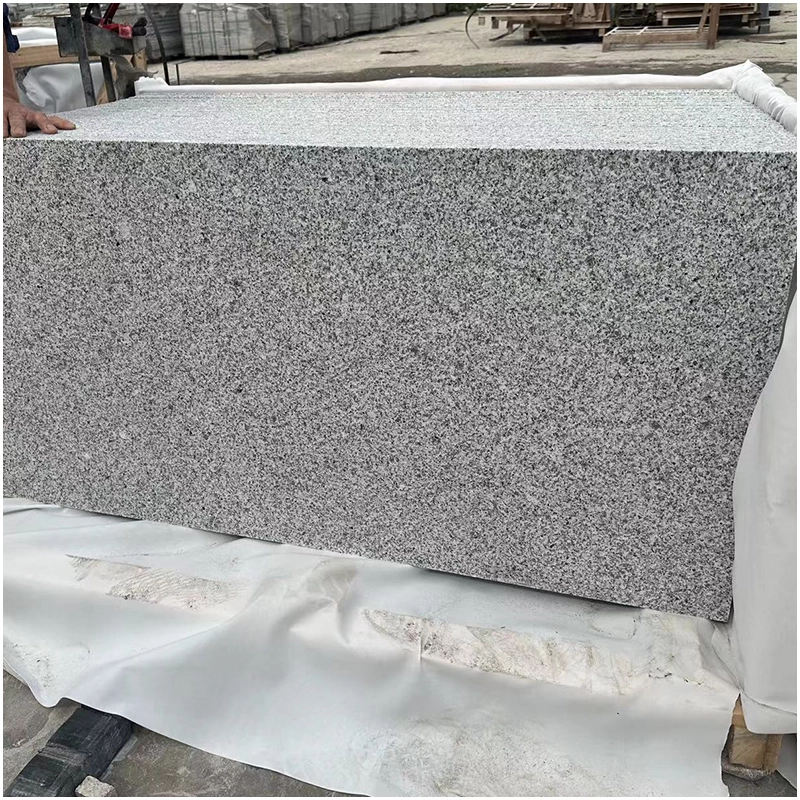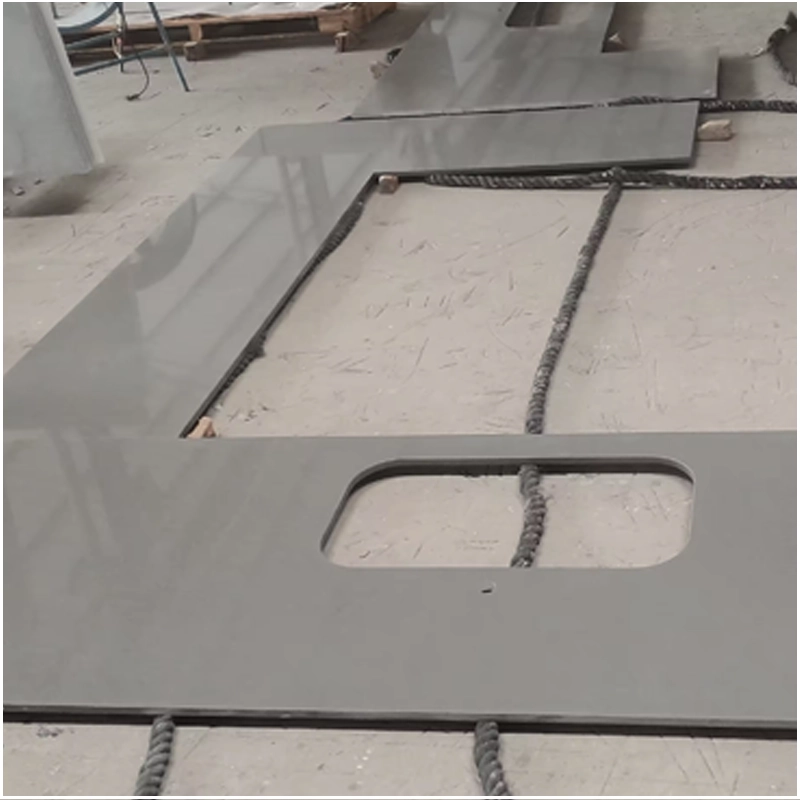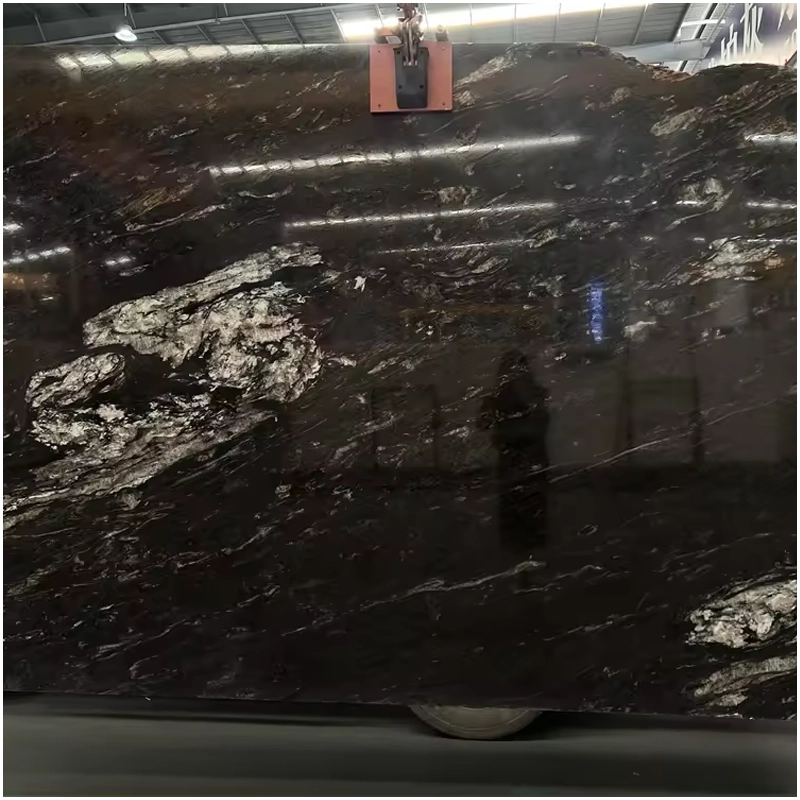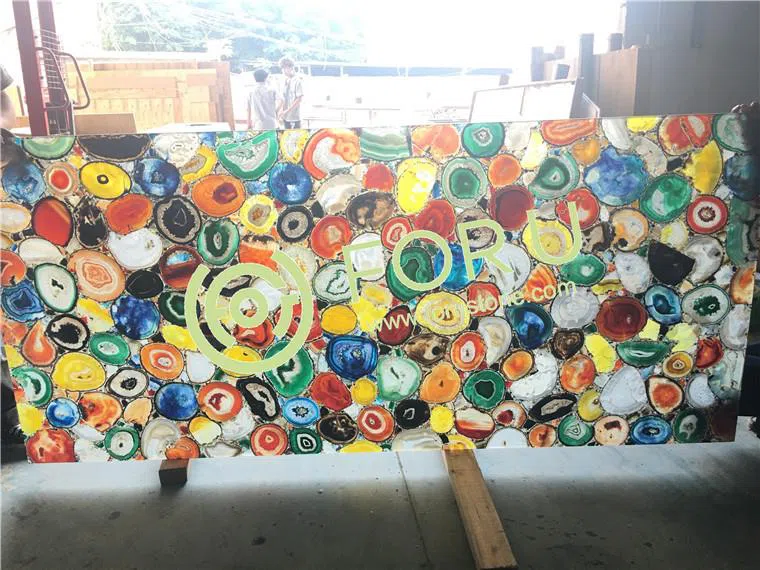Agate countertops Durability Under Everyday Stresses
Agate countertops have a number of challenges as they are overly used in kitchens and bathrooms. This paper contributes a measurement of the resistance of agate to scratches, heat, and chemicals as a way to determine their suitability as a surface material.
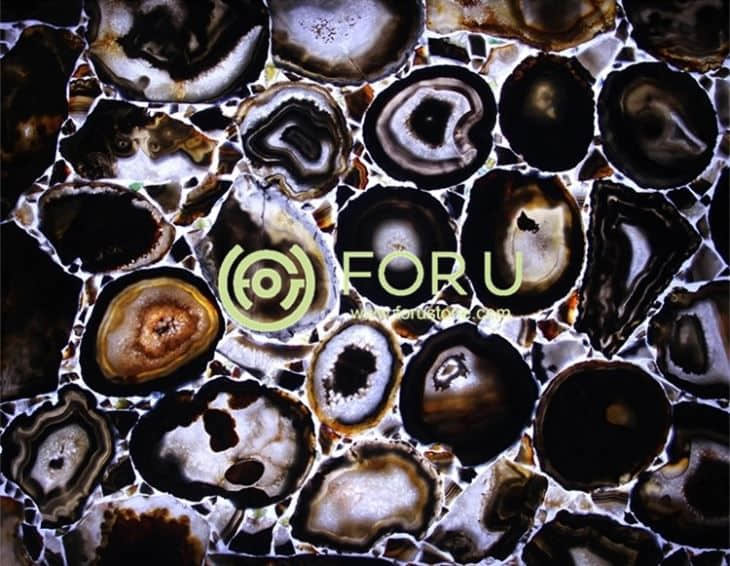
Then, compare that to other household favorites, and you’ll get a very good sense of how this plays out in a busy home.
Chemical Resistance
Most chemicals in household cleaners do not affect natural stones, such as agate. Most engineered quartz countertops are composed of approximately 90% quartz particles, other minerals, and bonding resins that compress into a very strong, slab-like solid and are nonporous. This allows them to resist scratching and chipping, for they are rated at 7 on the Mohs scale for hardness, greater than that of agate. Quartz affords one an expanded palette of colors and patterns that are not available in natural stone, and the patterns are consistent and uniform, which makes the installation procedure less complicated.
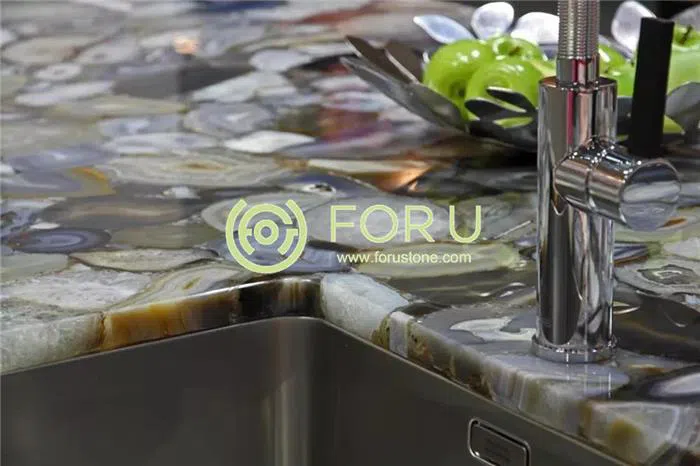
To prevent the surface from being damaged by acidic substances like lemon juice, vinegar, or tomato sauce, it is important to clean it regularly using a gentle detergent and a soft cloth. This will help to preserve its shine and protect it from potential harm caused by chemicals.
Maintenance and Longevity
The homeowner has to consider how practical the agate slab counter goes beyond just the installation point. In maintaining it, how much work will it take, and how many years of use will it be able to give?
Granite
In this regard, one could note that the durability and easy maintenance of granite stand out. This ranges on Moh’s scale between 6 and 7, just like agate. However, granite does generally contain the hardness of the material uniformly throughout; that may give a slight edge in overall durability and resistance to scratching. The colors were uniformly of equal lightness, and the darkness of the depth was uniformly of equal darknessness. Other deterministic factors might come into play, such as the intricate fine patterns of agate, for aesthetic preference. In porosity, both materials need sealing from stains, but granite may need it less often, basing on the exact type.
Homeowners and designers seeking to create a stylish and functional kitchen or bathroom are increasingly drawn to agate slab countertops. These unique countertops are renowned for their striking patterns and rich colors, offering a perfect blend of aesthetics and utility. While the appeal of agate slabs is undeniable, durability is a crucial factor to consider. This article will compare the durability of agate slab countertops to traditional materials like granite and quartz, examining their composition, resistance to wear and tear, and maintenance requirements to determine whether their practicality lives up to their visual appeal.
Agate is much stronger, durable, and less porous than marble, so for sure, the durability and easiness of maintenance are advantages– no longer simply for issues of realistic capability in a busy kitchen however additionally as plenty in beauty.
The durability of a countertop in practical use is mainly determined by how it is treated and finished during production. These factors can either improve or diminish its inherent strength.
Agate’s physical characteristics make it a suitable option for countertops, with a Mohs hardness scale rating of 6.5-7, which is lower than granite but close to commercial marble. While agate is generally resistant to scratches and wear from common kitchen utensils, it can still be scratched by harder objects. Its porosity is slightly higher than marble, and it has a moderate resistance to staining, requiring occasional sealing treatments.
Agate slabs offer a distinctive aesthetic that sets them apart from other materials used in kitchen and bathroom design. To appreciate their individuality, it’s essential to consider how they differ from more traditional options like granite, quartz, and marble, which are the three most popular choices for countertops. Let’s compare agate to these materials in various aspects.
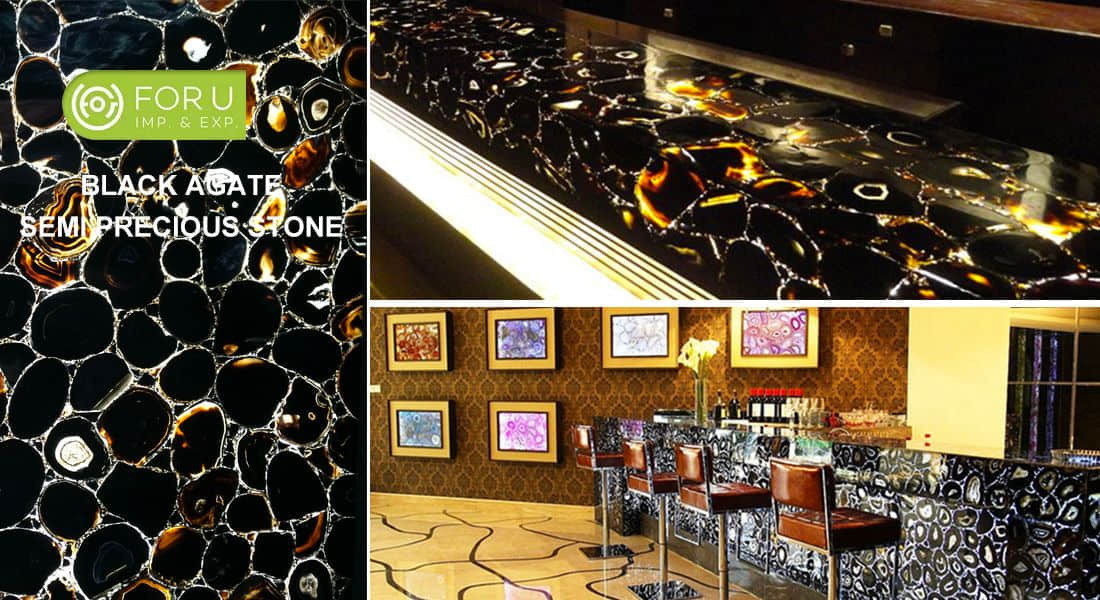
Agate is a type of quartz with a very fine grain and bright colors. Agate is formed through the filling of silica-rich ground water into fissures inside cooling lava. It gives the stone a banded appearance due to alternating steady pressure and mineral concentration during its formation. Scratch resistance Agate is quite strong but not as hard as quartz or granite. The actual Mohs Scale scores a low score for the Agate which shows that it may be held through for the normal activities of the kitchen, but not very well with the high-impact forces or very sharp objects. For all practical purposes of cooking or use, though, Agagate is quite hardy, and the polished finish usually means that even minor scratches can be polished out. Agate is also highly heat resistant, capable of tolerating hot pots or baking dishes taken straight out of the oven.
While it can handle exposure to moderate heat without issue, it is best to use trivets and heat pads in areas where long periods of exposure to heat may eventually result in thermal shock and potentially cause cracks in the granite over time. Many people love the marble since it is porous in nature, which gives rise to time-honoured elegance, yet this porous nature requires more care and often sealing to prevent discoloration. Agate countertops, in turn, are long-lasting and durable when proper maintenance is done. With due care and without damaging by chemical and temperature effects, these countertops age gracefully and show the least wear.
Marble has a relatively soft texture, as it ranks in at 3 to 5 on the Mohs scale, and, for this reason, it is prone to scratching and etching from acid. However, it can be said that from the point of natural stone, for example, agate might have the chance to be more heat-resistant than quartz to some extent. Maintenance Practices Like any other natural stone, agate countertops are sealed and maintained. It involves the prevention of staining and damage from water. The regimen for daily maintenance cleaning every day is to wipe the countertop with mild detergent soap that can clean the spills without etching the surface. This has to be done immediately once the spills occur at all costs so that they will not cause staining or etching. Restoration of Agate and Upkeep Expenses Deep scratches or significant damage can be expensive to fix when it comes to agate restoration. However, minor imperfections can often be polished away.
Agate maintenance costs are similar to those of other natural stone countertops. It needs to be sealed periodically to maintain its surface, and the cleaning process is relatively simple. Conclusion The mention of the existence of agate in slab form is not often the case since it is of great aesthetic appeal and durability. As it is less hard than quartz and less resistant to heat compared to granite, the agate countertop can still provide years of service with good care and maintenance. Combined with their distinctive beauty, this makes them a viable option for homeowners who would like to add style and substance to their living spaces.
Related Products
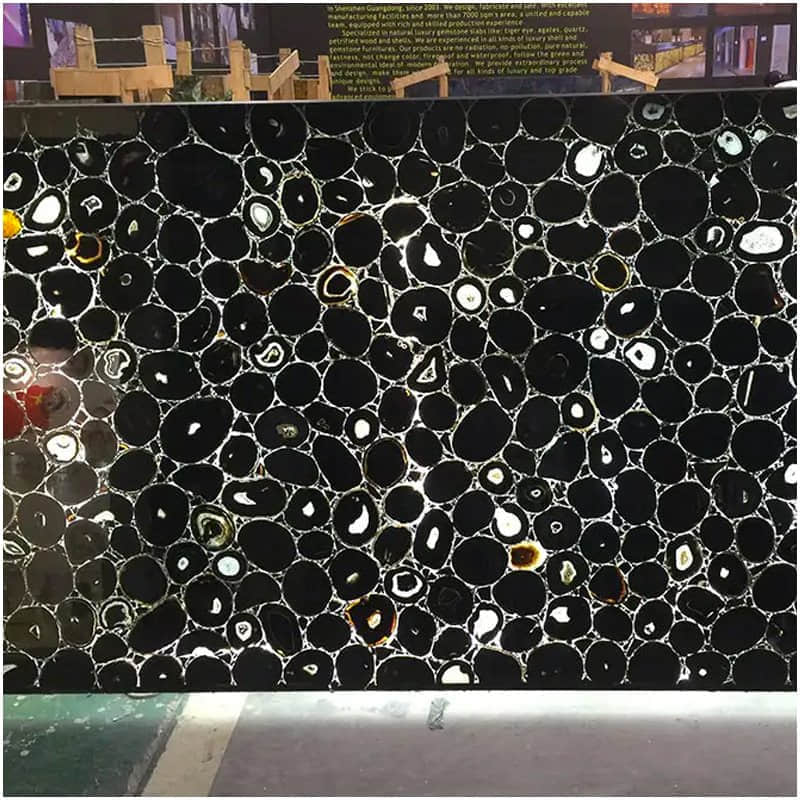
Backlit Black Agate Slab
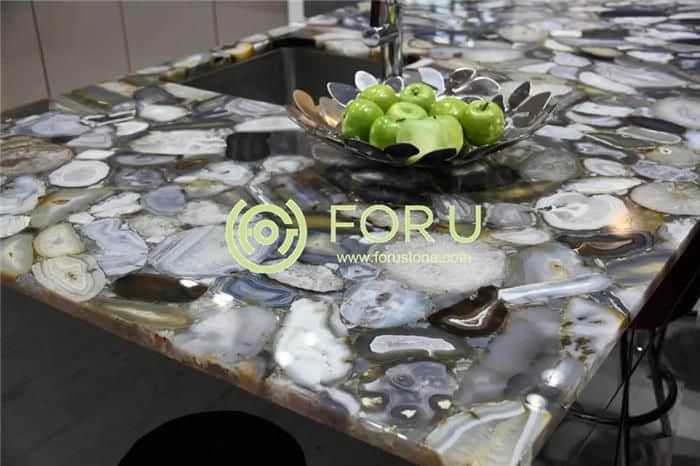
Agate Slabs Island Countertops
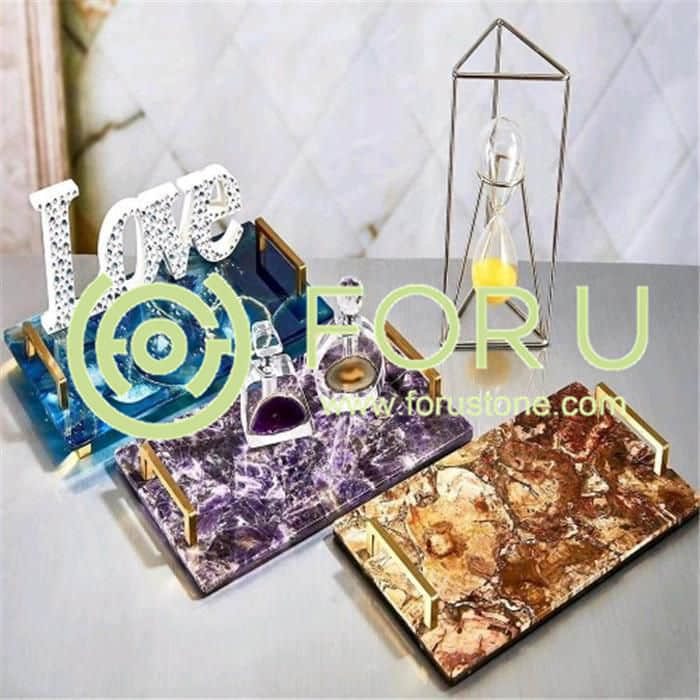
Agate Slabs For Sales
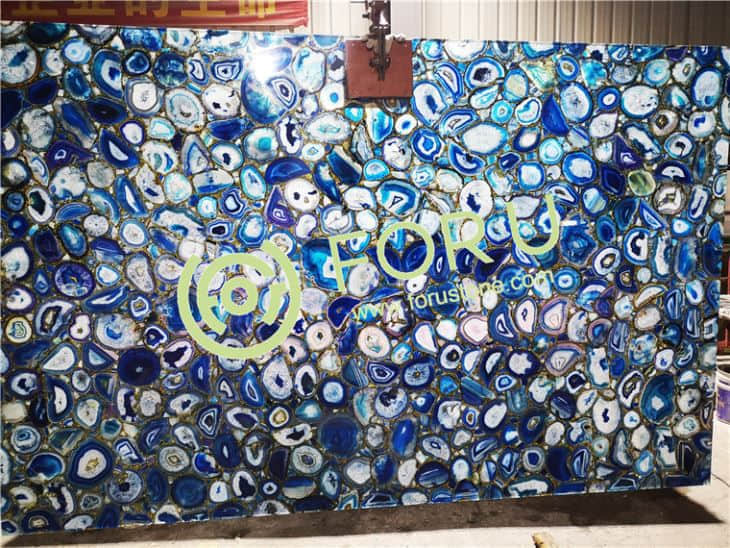
Agate Slabs For Sale

